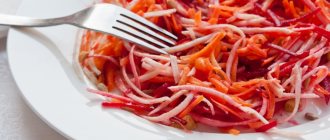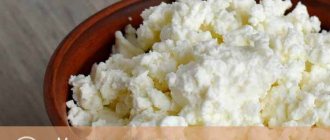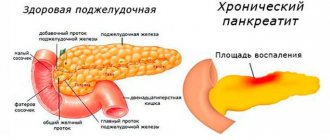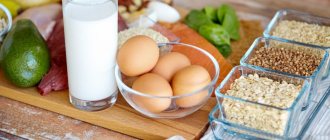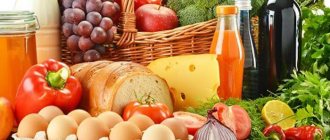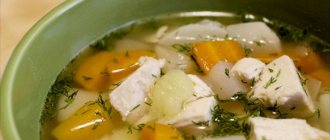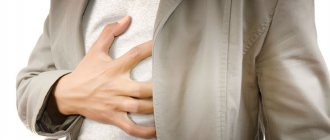Constipation is the retention of stool, temporary or permanent. Constipation can be a problem at any age, both infants and adults. This is a very common illness that many people are in no hurry to treat.
However, constipation can lead to serious consequences, which will be much more difficult to get rid of. Such a delicate problem as constipation is easiest to solve at the very beginning with the help of diet. Let's learn about proper nutrition for constipation.
Causes and consequences of constipation
Constipation occurs due to poor diet.
A huge number of people suffer from constipation, starting from infancy. Constipation is not considered a disease, but rather a symptom or a consequence of lifestyle.
However, chronic constipation and constant use of laxatives can lead to hemorrhoids, anal fissure, and also provoke other diseases that will not be easy to cure.
Proper nutrition for constipation, physical activity and drinking regimen can help cope with the problem. The causes of constipation have long been known:
- Poor nutrition. Currently, the habit of eating right remains only among a few. Cafes and pizzerias are opening at every step, where you can quickly and satisfyingly buy something. But such a diet leads to a lack of fiber, weakened intestinal motility and constipation.
- Sedentary work. The habit of sitting for 8 hours, and then getting home by car and taking the elevator leads to physical inactivity, weakening of muscles, stagnation of blood in the pelvic organs, constipation and often hemorrhoids.
- Pregnancy. During pregnancy, constipation almost always occurs due to the active production of hormones that relax muscles. Intestinal peristalsis weakens. If during pregnancy a woman limits herself to drinking due to edema, constipation may worsen and last for 2-3 days.
- Diseases of the gastrointestinal tract. Some diseases can lead to constipation, for example, diseases associated with stagnation of bile. Food is poorly digested and takes a long time to move through the intestines.
- Stress. Stress can cause both diarrhea and constipation. Constipation often occurs due to nervousness in an unfamiliar environment. For example, many children in a health camp cannot go to the toilet and endure it for a long time.
- Intestinal operations. Sometimes constipation is caused by decreased intestinal motility, but in this case, constipation may also be neurogenic due to fear of pain and blood during bowel movements.
- Depending on the cause, constipation can be divided into spastic and atonic. With atonic constipation, peristalsis is very weak, so stool moves slowly.
Spastic constipation is caused by a spasm of part of the intestines, as a result of which stool cannot move further.
Causes of constipation on a diet
A decrease in the frequency of bowel movements may be due to disruption of bowel function. Other symptoms of constipation include hard, dry, fragmented stool; increased gas formation, pain during bowel movements, the need to strain and heaviness in the abdomen.
Constipation is the result of a change in your usual diet. Much depends on the specific diet. Thus, on diets that include the consumption of large amounts of raw fruits and vegetables, this problem is less common due to the enrichment of the diet with fiber.
Strict dietary restrictions for a long time will lead to a lack of minerals and vitamins. Deficiency, in turn, leads to changes in muscle tone, including intestinal motility disorders. Even with normal stool consistency, stool may move more slowly, making bowel movements infrequent.
Constipation is associated with three main mistakes when losing weight:
- Lack of fluid.
Water is an important component of biochemical processes in the body; it also takes part in the formation of stool consistency. If the volume of liquid drunk is less than 2 liters per day, systemic functions, including digestive functions, may deteriorate. It is important to drink water 30 minutes before meals and no earlier than 40 minutes after meals. - Insufficient amount of food.
Fasting is contrary to the principles of proper nutrition. A lack of nutrients is fraught with hypovitaminosis, fatigue, weakness, and the development of various complications. As a result of rare meals, so-called nutritional constipation develops. Remember that it is permissible to reduce the portion size, but you should not fast for a long time - you need to eat up to 6 times a day. It is advisable not to allow more than 5 hours between meals - remember, you can always have a snack. - Extremely poor diet.
The body must receive the daily norm of nutrients and fiber. A poor diet is typical of so-called mono-diets. You can’t eat only chicken breast or certain grains. The diet should include lean meat, fish and poultry, fresh vegetables and fruits, dairy products, a variety of grains, olive oil, etc.
It is worth mentioning a less common mistake made by patients, but one that occurs in the practice of gastroenterologists. Many women, in an effort to lose excess weight, use weight loss medications. Some of these remedies have a laxative effect. After a course of such remedies, patients begin to adhere to a diet so that the lost pounds do not return. However, diarrhea can permanently disable the intestines. A large volume of lost fluid, changes in motility and sensitivity of intestinal receptors lead to constipation when losing weight.
It is recommended to change the diet gradually, while in most cases those who want to lose weight make adjustments in one day. This is stressful for the body. The lack of variety of foods, for example, with the Dukan diet, forces you to eat monotonous dishes, which reduces the activity of the gastrointestinal tract.
The situation “I went on a diet - I started getting constipated” is also familiar to those who introduce into their usual menu dishes that delay stool: rice, crackers, potatoes, black tea, jelly, etc. Improper nutrition can not only not give the desired result, but on the contrary, lead to serious intestinal problems and even weight gain.
Small portions can cause changes in metabolic processes, and improper drinking regimen seriously aggravates the situation. Some dishes and foods have a certain diuretic effect, as a result of which a large loss of fluid triggers another mechanism for the formation of constipation - the feces become drier and denser.
Emergency remedies for constipation
Glycerin suppositories can help relieve constipation.
It is still advisable to treat constipation with proper nutrition and exercise, but if constipation has already lasted about 3-4 days, emergency remedies are required that will help quickly overcome constipation with minimal stress on the pelvic vessels.
Prolonged constipation causes toxic poisoning of the body and worsens the condition. However, laxatives are called emergency drugs because it is advisable to use them only in extreme cases, but not all the time. Emergency remedies:
- Glycerin suppositories. Suppositories quickly, effectively and gently help get rid of constipation. One suppository is inserted into the anus. After 5 minutes you can already go to the toilet. Glycerin quickly dissolves and softens stool, and also acts as a lubricant. Candles are suitable for anal fissure. They can also be used during pregnancy. However, constant use of suppositories leads to a weakening of peristalsis; the effect may be the opposite.
- Microlax. These are microenemas that allow you to quickly cope with constipation. They are recommended for pregnant women and infants. Unlike water, the drug contained in microenemas does not wash away beneficial microflora. It gently envelops the intestinal walls, softens stool, and promotes its movement.
- Phytolax. These are chewable lozenges based on herbal ingredients. Fitolax is recommended for use in a course, but it contains senna herb, which enhances intestinal motility. Intestinal emptying occurs 8-12 hours after taking the drug. The drug should not be taken by pregnant women, since hay grass causes cramps and can cause miscarriage.
- Cleansing enema with water. An old and proven way to combat constipation. For an enema, it is recommended to use water at room temperature. Colon cleansing occurs almost immediately and is quite painless. However, frequent enemas disrupt the intestinal microflora. If constipation is severe, an enema may only be partially effective.
What to do
If you experience constipation while on a diet, it is important to understand what to do in such a situation. First of all, review your diet. The menu should include fresh vegetables and fruits rich in fiber. In the absence of flatulence, you can include legumes and whole grain bread in your diet. Plums, dried apricots, beets, prunes, and vegetable oils have a laxative effect.
It is strictly not recommended to help the body say goodbye to kilograms by uncontrollably taking weight loss medications. Be sure to consult your doctor to avoid complications.
The doctor will give individual recommendations on how to avoid constipation while dieting. By contacting a nutritionist, you will receive recommendations on proper nutrition and prevent possible complications.
If constipation occurs infrequently, you can try to urgently help your intestines using the following tips:
- Eat a few fresh plums or make freshly squeezed plum juice/fresh. Plum has a laxative effect, so if you are constipated on PP, it is permissible to consume the fruit once every 2-3 days. An alternative would be a handful of prunes or a couple of peaches.
- Eat a salad of boiled beets with vegetable oil. Beets are also a product with a pronounced laxative effect, and vegetable oil mechanically softens the passage of feces and makes them softer. You can make a salad from fresh beets by grating them on a coarse grater, and use sour cream as a dressing.
- Prepare juice from fresh vegetables - beets, carrots and celery.
- Eat 3–4 pieces. figs or a handful of steamed dried apricots.
- Eat some seaweed seasoned with vegetable oil.
- Drink dill water. This advice is especially relevant for cases where constipation is combined with flatulence. It’s easy to prepare water; just brew a tablespoon of dill seeds with a glass of water and let it brew.
- Bran. This is an effective means of combating constipation. By enriching your diet with insoluble dietary fiber, you can prevent constipation when switching to a new diet. Fiber stimulates intestinal motility and increases the volume of feces, facilitating their removal from the body.
It is important to start your morning with a glass of warm water. Water will start the gastrointestinal tract and create the necessary morning reflex to defecation. In addition, a glass of water will reduce your appetite, which will help you eat less - and this is important on a diet. And don't forget to drink water throughout the day.
The most effective foods against constipation
Properly cooked meat and fish will significantly improve intestinal motility.
Diet is the most effective method of treating chronic constipation. It not only normalizes intestinal function, but also reduces the load on the liver and pancreas, and helps get rid of stomach problems.
As a rule, a diet for constipation includes a large amount of fiber and liquid, but requires limiting foods that are difficult to digest and cause increased gas formation. There is a list of foods whose regular consumption will significantly improve intestinal motility:
- Flour products. However, this does not mean that you need to indulge in fresh pastries, rolls and pies. Only day-old or dried bread made from wholemeal flour, as well as bran bread, are good for the intestines; you can buy dietary bran, amaranth and rye bread. Rye bread should not be eaten by those who suffer from increased gas formation. You can eat biscuits and crackers, but in limited quantities.
- Meat and fish. Meat does not harm the intestines if it is properly cooked. Lean beef, turkey, boiled chicken breast or in the form of steamed cutlets will not only not harm you, but will also help improve the functioning of the gastrointestinal tract.
- Fruits. For constipation, it is recommended to eat plums, apples, and kiwi. But it’s better to avoid pears and bananas. The fruit can be eaten as a fruit salad with low-fat yogurt. Daily consumption of fruit partially satisfies the body's need for fiber and vitamins.
- Dried fruits. Perhaps this is the best laxative, as well as an irreplaceable source of vitamins. Prunes and dried apricots have long been known for their laxative effect. You can cook compotes from them, eat them just like that, or add them to salads and porridges.
- Vegetables. Vegetables are rich in fiber, but it is advisable to eat them raw. It is better to reduce the consumption of boiled potatoes. There is a salad called “Broom”, which cleanses the intestines better than any laxative. It includes raw carrots, beets, cabbage and greens. This salad is seasoned with oil, but not salted.
Basic Rules
The purpose of a diet for constipation is to normalize intestinal function, in particular, its regular emptying and ridding the body of toxic metabolic products. Therefore, the diet is aimed at increasing the daily intake of vitamins, fluids, minerals and, of course, plant fiber.
According to Pevzner’s classification, the diet for constipation corresponds to treatment table No. 3.
The protein content in the daily diet is 100-120 grams, fats - 100-120 grams, carbohydrates - 400-450 grams, salt - no more than 15 grams. Moreover, plant fiber should be contained in half of the daily diet.
The energy value of the diet corresponds to 3000-3500 kilocalories per day.
Basic diet rules for constipation:
- food processing; For constipation, it is recommended to eat boiled, steamed and baked food, but without crust (in foil). For atonic constipation, food should be prepared in portions and not crushed in order to enhance intestinal motility. It is better to exclude minced meat and puree products, since such food does not stimulate intestinal motility. And with spastic constipation, food should, on the contrary, be soft so as not to provoke abdominal pain.
- diet; Food should be taken in small portions: 5-6 times a day in small portions. This promotes better bowel function.
- food temperature; When eating, you should adhere to the temperature regime: eat food heated to 15-60 degrees Celsius. Too cold and too hot dishes have an irritating effect on the stomach, which, in turn, negatively affects the functioning of the intestines.
- refusal of alcoholic drinks; If you are constipated or prone to it, you should abstain from alcoholic beverages, as they act as diuretics. Frequent consumption of alcohol leads to dehydration of the body and contributes to the creation of fecal blockages.
- fluid intake; The daily amount of free fluid should reach 1.5-2 liters. For drinks, preference should be given to mineral waters and fruit drinks without sugar. Water softens stool, making bowel movements easier. But it’s better to avoid cocoa, strong coffee and tea.
- vegetable fiber; A diet for constipation includes eating plenty of raw and cooked vegetables and fruits. The plant fiber contained in them absorbs water in the large intestine, this increases the amount of feces, makes them softer, has a positive effect on intestinal motility, ensures the growth of intestinal microflora, and also removes toxins from the body.
Prohibited foods for constipation
Eating store-bought sausages leads to disruption of intestinal motility.
In addition to the recommended products, there are also prohibited ones, which clog the intestines, make it difficult to empty them, negatively affect the functioning of the entire gastrointestinal tract, and are also the main cause of weight and skin problems.
- Sausage and frankfurters. As you know, store-bought sausages contain very little meat, but a lot of food additives, flavor enhancers, fat, etc. The habit of snacking on sausage leads to disruption of intestinal motility and increases the risk of cholesterol plaques.
- Chips and hamburgers. In medicine, such products are called “junk food” because they contain a large amount of harmful substances and practically zero useful ones. Such products only clog the body, leading to severe constipation, gastritis and ulcers.
- Sparkling water. Carbonation leads to increased gas formation, slows down the digestion of food, and leads to gastritis and constipation. In addition to the gas itself, it contains a lot of sugar and flavorings, which also harm the body.
- Mayonnaise and store-bought sauces. Mayonnaise and other sauces can be used occasionally as an exception, but you definitely shouldn’t pour mayonnaise on every dish every day. It contains a large number of calories and E-additives, which negatively affect the functioning of the gastrointestinal tract. You should not console yourself that low-calorie, light and “natural” store-bought mayonnaise made with quail eggs is not so harmful.
- Fresh pastries and white bread. Occasionally, you can eat fresh baked goods, but in small quantities. It affects weight and bowel function.
- Sweets. Sweets and chocolate lead to various problems; it is advisable to replace them with other delicious sweets such as natural curd desserts, homemade sweets made from dried fruits and nuts.
- Alcohol. Alcohol in any quantity is harmful, even in small doses. It complicates the work of the intestines, irritates the walls of the stomach, and slows down metabolic processes.
If you can’t completely avoid these foods, first reduce your consumption. As a rule, after several weeks of abstaining from harmful foods, the body gets used to it and no longer requires such food.
Correction of the diet menu
To understand how to avoid constipation while dieting, it is important to review the composition of your diet. Without the use of fermented milk products, dishes rich in dietary fiber, and vegetable oils, this is unlikely to be possible. In addition, it is worth considering that a diet that strictly excludes these foods can hardly be considered effective.
So-called mono-diets have proven harm to the body. It is better to consult a nutritionist to develop a suitable menu. Thus, it is strictly not recommended to give up vegetable oils. Oils are a source of beneficial substances and, when consumed in moderation, do not affect the volume of the figure.
Fermented milk products can be consumed if there are no health restrictions (for example, lactase deficiency), and to achieve the desired effect of the diet, you can choose low-fat products. You can add bran in small quantities to fermented milk drinks - this will help you get your daily intake of dietary fiber.
There are several rules for a healthy diet that will help maintain normal bowel function.
- Try not to skip breakfast: firstly, it will recharge your energy. Secondly, a hearty morning meal stimulates the necessary reflex. For breakfast, you can choose steamed omelets, porridge (except rice) with the addition of dried apricots, prunes, honey or berries, bread with avocado and/or low-fat cottage cheese, etc.
- It is important to drink enough water during the day: you won’t be able to get the required 1.5-2 liters of water in the evening; you need to drink it in the morning and afternoon hours.
Remember that your diet should include fresh vegetables, fruits, herbs, and berries. If the diet is aimed at weight loss, try to choose low-calorie fruits and berries - oranges, strawberries, peaches, avocados, grapefruits, lemons, etc. Among vegetables, it is better to give preference to those that do not cause increased gas formation and have some laxative effect - beets, carrots, celery, etc.
